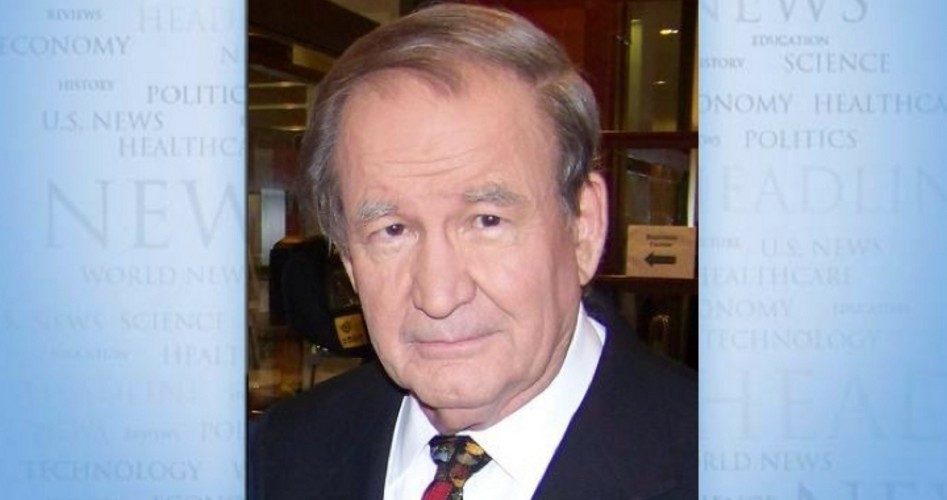
“Eli, Eli, lama sabachthani? (My God, my God, why have you forsaken me?)” Those are among Jesus’ last words on the Cross that first Good Friday.
It was a cry of agony, but not despair. The dying Christ, to rise again in three days, was repeating the first words of the 22nd Psalm.
And today, in lands where Christ lived and taught and beyond where the Christian faith was born and nourished, the words echo. For it is in the birthplace of Christianity that Christians face the greatest of persecutions and martyrdoms since the time of Vladimir Lenin and Josef Stalin.
President Donald Trump, outraged by pictures of infants and children who had perished in the nerve gas attack in Syria, ordered missile strikes on the air base from which the war crime came.
Two days later, Palm Sunday, 44 Coptic Christians celebrating Christ’s triumphal entry into Jerusalem were martyred in terrorist attacks in Egypt. The first bombing was at St. George’s Church in Tanta, the second at St. Mark’s in Alexandria, where the Coptic Pope Tawadros II was at Mass.
The pope was unhurt, but 100 Christians were injured in the attacks. At St. George’s, one witness described the scene after the bomb exploded near the altar: “I saw pieces of body parts…. There was so much blood everywhere. Some people had half of their bodies missing.”
The Islamic State group claims credit for the murders, and the pictures of dead children from those churches were surely as horrific as the pictures the president saw after the gas attack.
Copts are among the earliest Christians, dating to the first century A.D., when St. Mark, one of the Twelve Apostles, established the first church outside the Holy Land and became bishop of Alexandria.
The Copts make up 10 percent of Egypt’s population. They have been especially targeted for terrorist attacks since the 2013 overthrow of the Muslim Brotherhood’s Mohammed Morsi, who had been elected president after the ouster of longtime U.S. ally Hosni Mubarak.
In the subsequent struggle between Egypt’s Islamists, whose base is in Sinai, and the Cairo regime of Abdel-Fattah el-Sissi, who was welcomed to the White House in March, the Copts are seen as soft-target allies of Gen. el-Sissi’s and hated for their faith.
Whatever they did for democracy, the U.S. interventions in the Middle East and the vaunted Arab Spring have proved to be pure hell for Arab Christians.
In Saddam Hussein’s Iraq, Christians were left alone if they did not interfere in politics. Indeed, they prospered as doctors, lawyers, journalists, academics, engineers, businessmen. A Christian, Tariq Aziz, was Saddam’s foreign minister who negotiated with Secretary of State James Baker to try to prevent what became the Gulf War.
Before 2003, there were still 800,000 Christians in Iraq. But after a decade of church bombings and murders of priests, their numbers have plummeted. When the Islamic State seized a third of Iraq, Christians under the group’s rule had to convert to Islam and pay a tax or face beheading.
On Dec. 26, St. Stephen’s Day, which honors the first martyr, Pope Francis hailed the Iraqi Christians lately liberated from Islamic State rule, noting, “They are our martyrs of today, and there are so many we can say that they are more numerous than in the first centuries.”
In 2016, an estimated 90,000 more Christians worldwide died for their faith.
Under Syria’s dictator Hafez al-Assad and son Bashar, Christians have been 10 percent of the population and protected by the regime. They thus have sided with Assad against the terrorists of the Islamic State and al-Qaida, whose victory would mean their expulsion or death.
Of the 10 nations deemed by Christianity Today to be the most hateful and hostile toward Christianity, eight are majority-Muslim nations, with the Middle East being the site of the worst of today’s persecutions.
Afghanistan, which we “liberated” in 2001, is listed as the third-most hostile nation toward Christians. The punishment for baptism there is death. A decade ago, a Christian convert had to flee his country to avoid beheading.
Consider. Christianity, whose greatest feast day we celebrate Sunday, is the cradle faith of the culture and the civilization of the West. And in our secularized world, Christianity remains the predominant faith.
A millennium ago, Christendom mounted crusades to ensure that its pilgrims would not lose the right to visit the Holy Land in peace.
Now, a decade and a half after we launched invasions and occupations of the Muslim world in Afghanistan and then Iraq to bring the blessings of democracy, the people there who profess that Christian faith are being persecuted as horribly as they were under the Romans in Nero’s time.
Where are the gains for religious freedom and human rights to justify all the bombings, invasions and wars we have conducted in the lands from Libya to Pakistan — to justify the losses we have endured and the death and suffering we have inflicted?
Truth be told, it is in part because of us that Christianity is on its way to being exterminated in its cradle.
Happy Easter!
Photo of Patrick J. Buchanan: By Bbsrock – Own work, CC BY-SA 3.0, https://commons.wikimedia.org/w/index.php?curid=3369020
Patrick J. Buchanan is the author of a new book, out in May, Nixon’s White House Wars: The Battles That Made and Broke a President and Divided America Forever. To find out more about Patrick Buchanan and read features by other Creators writers and cartoonists, visit the Creators website at www.creators.com.
COPYRIGHT 2017 CREATORS.COM



